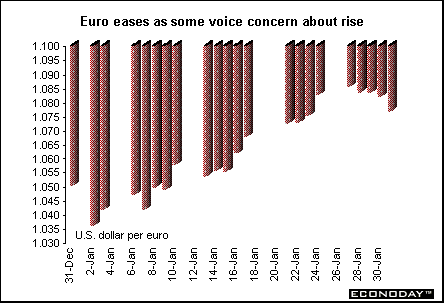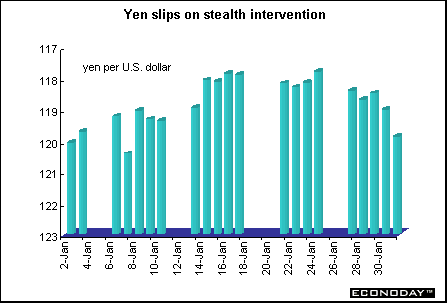
Currencies
The dollar had its biggest gain against the euro in four weeks after the Federal Reserve said it expects the U.S. economy to strengthen. The dollar also climbed against the yen as Fed policy makers said that the "accommodative stance of monetary policy, coupled with ongoing growth in productivity, will provide support to an improving economic climate."

The dollar's 2.6 percent decline against the euro in the past month has hurt foreign investors' returns on U.S. assets. The dollar's declines against the euro have hurt foreign investors' returns on U.S. assets. A European investor who bought U.S. Treasuries due in a year and more would have lost 3.7 percent in the past month, while U.S. investor buying European bonds would have made 4.3 percent.

In the past 13 months, the dollar has fallen 9.5 percent against the yen, while the euro has risen 21 percent against the U.S. currency. The slide has been a boon to U.S. manufacturers, who can now compete more easily against foreign companies. But it makes foreign investors, whose cash is a critical support for the American economy, wonder whether a falling dollar will reduce the value of their U.S. investments in their home currencies. After seven weeks of constant gains, the yen is finally cooling down - much to the relief of policymakers in Japan. The dollar has been sinking for about two months, as the possible impact of rising oil prices and war on Iraq combine with worries about the strength of the U.S. economy in general. But a continued slide would be dire news for Japan, where a demand-starved domestic market means exports are the key to continued survival.
The yen had its biggest drop against the dollar in three weeks after Japan said it sold about ¥700 billion ($5.88 billion) since mid-January to stem a rally that has crimped the country's exports. Some traders sold yen for dollars as a bet the Bank of Japan will keep selling the currency in coming days to cut into its 13% surge in the past 12 months. With companies including Sony Corp. and Toyota Motor Corp. reporting that overseas sales have been hurt by the yen's rally, Japanese officials have expressed concern that the economy is faltering.
The yen sales are the first by the Bank of Japan since June, when the dollar traded between 118.40 yen and 120.26 yen. Japan sold more than $30 billion of yen in seven days in 2002.


Last Week's Highlights • Global Stock Market Indexes • Recap of Global Markets • Currencies • Indicator Scoreboard

The Bottom Line • Looking Ahead
|